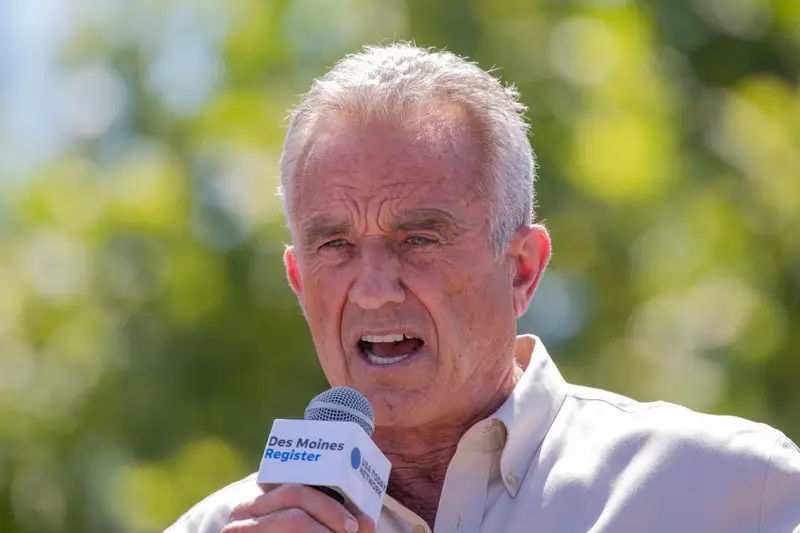Health and Human Services Secretary Robert F. Kennedy Jr. has introduced a new strategy to handle the avian flu outbreak impacting U.S. poultry farms: allowing the virus to naturally spread through flocks instead of culling infected birds.
The suggestion, made during a March 11, 2025 interview on Fox News, has been met with significant criticism from veterinary scientists, government officials, and public health experts. They warn that this approach could have serious consequences for both the poultry industry and public health.
“They should isolate them. You should let the disease go through them and identify the birds that survive, which are the birds that probably have a genetic inclination for immunity, and those should be the birds that we breed,” Kennedy said during the interview.
Kennedy believes this method would help pinpoint birds with natural immunity, potentially preserving genetic resistance. However, experts largely oppose this idea due to the high lethality of the highly pathogenic avian influenza among poultry.
Since January 2022, over 1,600 virus outbreaks have occurred on U.S. farms, affecting more than 366 million birds. The current policy, upheld by the U.S. Department of Agriculture (USDA), mandates that farmers cull entire flocks when the virus is detected, a practice Kennedy has suggested revising.
This strain of highly pathogenic avian influenza is notably deadly for chickens, with mortality rates between 90% and 100% within three to four days of infection. Poultry disease experts note that this rapid progression doesn’t allow time for birds to develop antibodies for resistance.
A poultry veterinarian with direct experience in bird flu outbreaks cautioned that allowing the virus to spread would be disastrous. Infected chickens and turkeys typically die, and the process is neither quick nor clean. The idea, the veterinarian suggested, is both unworkable and inhumane.
Beyond concerns for animal welfare, experts fear that unchecked virus spread could lead to mutations into more dangerous forms. Each infected bird offers an opportunity for the virus to evolve, potentially gaining traits that could increase transmissibility to humans or other animals.
The current outbreak has already shown troubling transmission patterns. While previous outbreaks have been effectively managed through culling and containment since the 1980s, the current strain has found new ways to spread to poultry farms, challenging existing biosecurity measures.
According to Kennedy’s proposed strategy, farm workers would face increased risks. Greater exposure to infected birds would heighten the likelihood of human infection, potentially paving the way for a pandemic strain.
Kennedy has also voiced concerns about vaccination as an alternative strategy. In separate comments, he cautioned against vaccinating poultry during the ongoing outbreak, citing the risks of “leaky vaccines” that he claimed could turn flocks into “mutation factories” for the virus.
The economic impact of the bird flu outbreak has already been significant, with egg prices more than doubling due to the culling of infected flocks. Kennedy’s proposal arises when only 10 states have fully implemented the current strategy of culling infected flocks and enforcing biosecurity measures.
Researchers and public health officials are tackling the outbreak on multiple fronts. Scientists are studying the virus’s spread and improving biosecurity measures. They are also examining genetic variations in poultry immune responses to develop more effective vaccines, although Kennedy has expressed skepticism about this approach.
Kennedy also suggested that wild birds might have natural immunity to the virus. Still, the Centers for Disease Control and Prevention (CDC) has documented that the H5N1 virus has killed various wild species.
While the CDC currently reports that human risk from the outbreak remains low, health officials emphasize the necessity of continued vigilance and effective containment strategies to prevent potential spillover to humans.
Kennedy’s role as HHS Secretary does not encompass agricultural policy, which is under the USDA’s jurisdiction. The USDA has not indicated any plans to alter its current culling requirements in response to Kennedy’s suggestions.
Experts continue to support the existing strategy of culling infected flocks, asserting it remains the most effective approach to containing the bird flu outbreak while safeguarding both animal welfare and public health.











